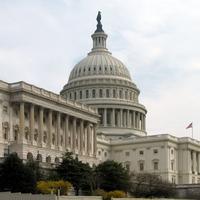HUD Issues Updated EHV Operating Requirements & Reporting Notice
On August 20, 2021, HUD issued Notice PIH 2021-25 entitled Emergency Housing Vouchers – Voucher Management System and Financial Data Schedule Reporting Requirements, which updates operating requirements described in Notice PIH 2021-20 and outlines new reporting guidance for PHAs that administer Emergency Housing Vouchers (EHVs).
CLPHA previously reported that LPHA members received 28,230 EHVs, or 40% of the $5 billion allocated in the American Rescue Plan for 70,000 EHVs. While CLPHA members indicated on a recent CLPHA Tenant-Based Housing Assistance Committee call that many have executed the required Memorandum of Understanding (MOU) with their local Continuum of Care (CoC) and have begun receiving direct referrals of qualifying individuals and families, many report a flurry of challenges.
CLPHA has been meeting weekly with HUD and the National Alliance to End Homelessness to address various challenges like slow and insufficient referrals from local CoCs, as well as communication and operational barriers. On a recent HUD call, PIH staff assured CLPHA that the updated EHV Reporting Notice would attempt to address many of these challenges as detailed below.
Updates to Issuance Fee Reporting Deadline
Many CLPHA members reported concerns with HUD’s short deadline for entering issuance data in the Information Management System/Public Housing Information Center (IMS/PIC) system, which is required to claim the $100 Issuance Fee. Prior to submitting issuance data, many CLPHA members indicated they would be required to make costly updates to their PHA software management systems at a time that some major software vendors have not developed a mechanism for capturing EHV issuance data. As a result, some worry they will not be able to resolve these challenges to indicate their eligibility for the fee despite their extreme efforts to quickly lease-up EHVs. Notice PIH 2021-25 now indicates that HUD is changing the deadline for PHAs to enter issuance data and is giving software vendors additional time to implement a new EHV code in the HUD-50058 and HUD-50058 MTW. While HUD does not indicate the new deadline in the Notice, it states that “HUD will provide PHAs with at least a 30-day notification email of the date from which they will have 14 days to enter previous issuances to qualify for the fee”. CLPHA remains concern that this technical fix may still require some PHAs to make costly software updates, which will most likely take much longer to implement than the extended issuance fee reporting deadline.
Update to EHV Reporting for HUD-50058 MTW
MTW PHAs that have received approval to use their MTW flexibilities for EHVs may now report household participant data on the HUD-50058 MTW and must enter “EHV” on line 2p and leave line 2n blank.
It is important to note that some CLPHA members have reported difficulty in obtaining timely approval from their local MTW office to use their MTW flexibilities for EHVs. Notice PIH 2021-25 continues to reiterate that MTW PHAs are only permitted to use EHV funding (EHV HAP funding and all forms of EHV administrative fees) on eligible EHV expenses.
New Reporting Requirements for EHV Service Fee
PHAs are now required to report on how the $3500 EHV service fee was used for one of the eligible categories in the Voucher Management System (VMS):
- Housing Search Assistance Expenses,
- Security/Utility Deposit/Rental Application /Holding Fee Expenses,
- Owner-Related Expenses,
- Other Expenses,
- Unspent
CLPHA members continue to report challenges related to the adequacy of EHV service fee funding to cover costs like housing navigation services. Likewise, some members report having difficulty in obtaining funding commitments for supportive services from their local CoCs for EHV participants. On a recent HUD call, PIH staff indicated the guidance on service fees is not “strong enough” and they are hosting office hours to discuss these concerns directly with PHAs. To learn more about joining future sessions, click here to subscribe. Office hours are currently being held biweekly. Click here to listen to past recorded webinar and office hours.
CLPHA will continue to advocate for sufficient funding to provide EHV families with adequate supportive services and more guidance on allocation of EHV service fees between PHAs and MOU partners.
COCC Allocation for EHV Staff Costs
Many PHAs have assigned Housing Choice Voucher (HCV) program staff to support EHVs. Notice PIH 2021-25 stipulates that PHAs that operate using HUD’s asset management central office cost center (COCC) are permitted to charge the EHV program fees for staff costs associated with the EHV program. PHAs must account for staff costs for the EHV and HCV programs separately.
VMS Updated for EHV
VMS reporting requirements for the EHV program are like HCV reporting requirements, but Notice PIH 2021-25 has modified VMS to collect EHV data on leasing, HAP expenses, administrative fees, FSS escrow deposits and restricted and unrestricted net position funds.
FDS Reporting Guidance Updated for EHV
For FDS reporting, the Real Estate Assessment Center has created a new reporting column 14.EHV in the FASS-PH system under which PHAs will report their EHV program. Reference Notice PIH 2021-25 for tables that describe and summarize each fee type and provide guidance on how these fees should be reported in the FDS.
CLPHA will continue to monitor and report on PHAs’ challenges with administering the Emergency Housing Voucher program.

On May 2, 2025, the Trump administration released its budget proposal for Fiscal Year 2026 (FY26).

On March 11, 2024, the Biden Administration released its budget proposal for Fiscal Year 2025 (FY25). For the Department of Housing and Urban Development (HUD), the Budget requests $72.6 billion in discretionary budget authority for FY25, a $2.531 billion increase or 3.6 percent increase from the FY24 enacted level.

On March 9, the Biden Administration released its preliminary budget proposal for fiscal year 2024.